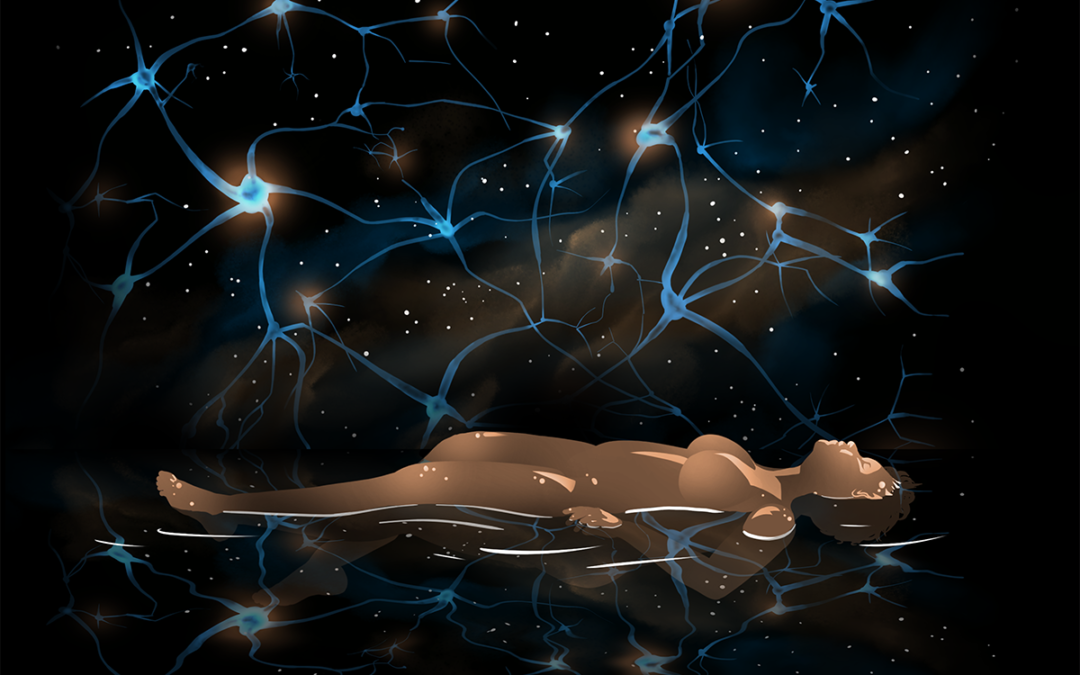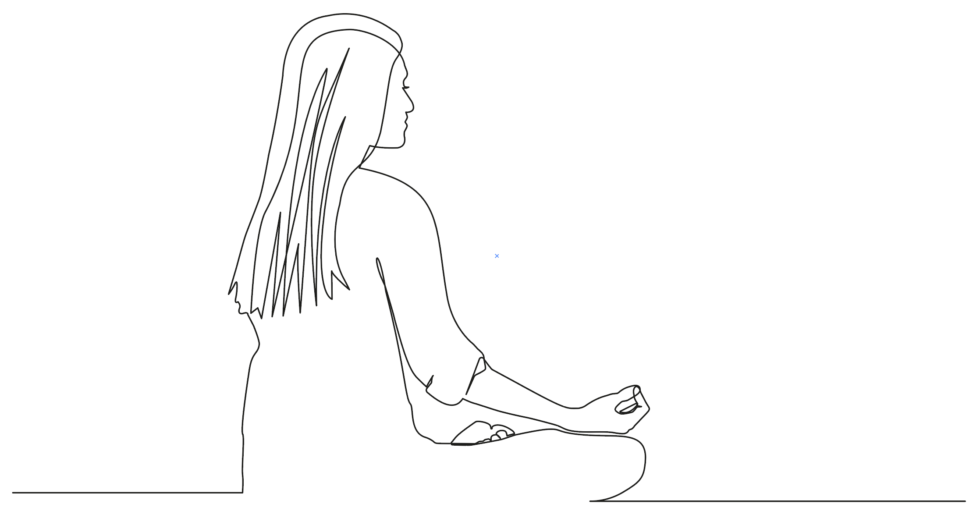What Happens to your Brain when you Float? The Theta State

What’s happening to your brain when you float? How do you go from being awake, conscious, and stressed to relaxed and dreamy? While we still have a lot to discover when it comes to different states of consciousness, one key element is the “Theta State,” when our brain waves operate at a certain frequency most often linked to the moments between sleep and wakefulness. To really understand what the Theta State is and how it benefits us, we have to first explore a little bit about brain waves more broadly.
In 1924, German psychoanalyst Hans Berger recorded an electronic signal coming from the brain for the first time. The signal was chaotic, intermittent, and didn’t exactly fit with the contemporary understanding of how brains functioned. It took him five years to figure out what his findings meant before he could publish any meaningful results, and it took over a decade for the international scientific community to accept them as legitimate (some readers may notice that there are parallels to be drawn here with how float tank research has been received by academia).
Since then, scientists have discovered multiple frequency bands that brain waves operate on, including Alpha (aka “the Berger wave”), Beta, Gamma, Delta, and of course – Theta. Whenever a certain frequency is dominant, we say the brain is in a certain “state.” As an example, when you’re holding a conversation, your brain is using resources that are alert, engaged, and focusing on details, so it is in the “Beta state.”
Theta brain waves are a lower frequency band, which means they’re typically more active when you’re less active. This type of brain activity is much more common in children and becomes less frequent as we get older. Theta State is also often associated with some really great benefits: increased creativity, stress reduction, restfulness, and contentment. These benefits extend beyond the moments when your mind is in Theta State and regular practice can prolong these benefits, leading to greater health outcomes.
Since they were first discovered, Theta waves have been seen as a key to understanding the subconscious mind. Research has shown that theta waves are running the show when we’re in the moments between sleep and wakefulness, where consciousness is malleable and intuition is higher.
From the 1950s through the 1970s, neuroscientists were eagerly examining the brainwaves of all sorts of people performing a variety of different activities (not the easiest thing to do, given that early EEG technology looked a lot like this). One thing researchers discovered was that Buddhist monks were slipping deeply into Theta State when meditating, demonstrating a clear physiological effect from this (at the time) poorly understood religious practice (research has since shown that experienced meditators can also slip into Gamma State, as well).
This caused a flood of excitement and curiosity. What else could cause our minds to flip into this mental recharge state? When researchers began studying sensory reduced environments, it wasn’t long until they started looking to see what impacts it was having on the brain. Perhaps unsurprisingly, they found that there was a massive increase in theta waves in subjects. One of the problems was that, given the limitations of technology, they couldn’t monitor brain waves until after people got out of a float tank, leading to gaps in understanding about what was happening during the floats themselves.
Until recently EEG technology just couldn’t handle the wet and salty environment of a float tank. But as of 2016, thanks to new developments in wireless EEG technology, we can watch people enter Theta State in a float tank in real time. Because of this, we’re finally able to figure out what’s going on inside the brain during a float.
It turns out that even first time floaters are able to get into Theta State during a 90 minute float. Experienced floaters are not only likely to experience Theta State, but can do so much more easily, staying within that mental state for much longer stretches of time.
Given all this, it’s not exactly surprising that floating has been shown to significantly reduce stress, enhance creativity, and improve sleep – these benefits are all closely related to Theta brain activity. Also notable is that as people float more often, it gets easier to enter Theta State inside and outside of the tank. Interestingly, the scientific discovery of what happens to our minds during floating is actually more exciting now than when it was first discovered.
We now know that floating is great for general mental health improvements and in patients with stress or anxiety disorders, it can have even more profound effects. Low theta wave activity is associated with several mood disorders including PTSD and Depression. The increased activity in Theta may even contribute to why floating has such a remarkable ability to alter the brain activity of people with anxiety conditions to bring them back to baseline stress levels like those found in healthy brains.
While there’s been a long history of almost mythological deference to the Theta State in the alternative wellness community throughout the years, the science has never been more clear: the Theta State exists, is beneficial, and can be reached through floating.
So what are you waiting for? Go float yourself.
The post What Happens to your Brain when you Float? The Theta State appeared first on Float North County.
Ready to work with Float North County?
Let's connect! We’re here to help.
Send us a message and we’ll be in touch.
Or give us a call today at (858) 925-6069








